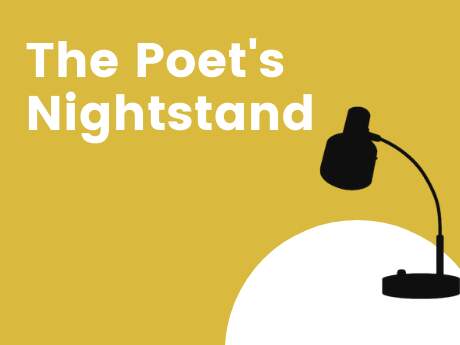The Poet’s Nightstand
The Poets Nightstand with Lynn Melnick
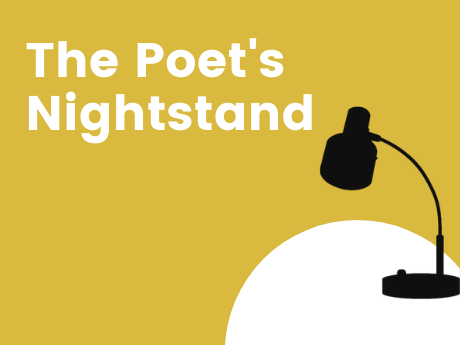
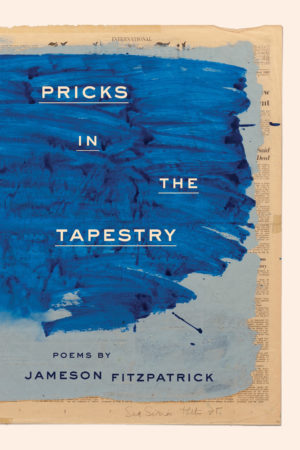
Jameson Fitzpatrick, Pricks in the Tapestry (Birds, LLC)
I couldn’t stop reading this book even though sometimes I wanted to. That is a ringing endorsement, although maybe it doesn’t sound as such, but I couldn’t stop reading it because it is intense and stark and beautiful and devastating and unresolved and I wanted to stop for the same reasons. In writing about Fitzpatrick's particular queer experience, that of their late uncle, and the queer communities that came and went through the AIDS crises and through to the present day, there is a painful and inevitable line, muddled often, between futility and hope. As much as Pricks in the Tapestry ends on hope, it just as much ends on futility. This is what makes the book so compelling. Fitzpatrick is really adept at using words and forms to push towards and alongside the word meanings. And word meanings—what is said and unsaid, how and by whom—shadow the whole collection, making it impossible and crucial.
Purchase Book
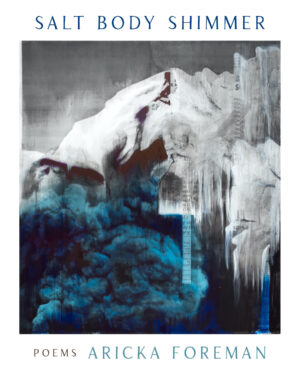
Aricka Foreman, Salt Body Shimmer (YesYes Books)
I’ve been a devoted reader of Foreman’s work since I first came across it in 2013, so naturally I was thrilled when her debut full-length poetry collection came out last year. This book is everything: everything I expected from her astonishing talent, everything I did not expect that knocked me off my feet for a bit, everything I needed but never knew how to find or say. I don’t think I’ve ever read a book so embodied. It felt like listening to loud music or sinking into the sea. That immersive. These poems use language to mirror trauma and survival. The relationship is symbiotic; the language isn’t in service to the meaning nor the other way around. These poems are whole. Foreman always knows where she is in a poem—these are deft hands—and any reader of Salt Body Shimmer will feel the strength and surety of these poems as they mark the reality of a body in a white supremacist rape culture. That that reality here also includes such lyric beauty is a gift to us all.
Purchase Book
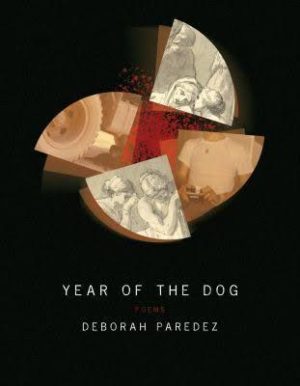
Deborah Paredez, Year of the Dog (BOA Editions)
Examining a world in which boundaries create problems, Year of the Dog knows no boundaries. This book is exhilarating, like hanging out with a friend who you know will invite adventure. These poems are traditional, or they’re a list of the Vietnam War dead from one predominately Mexican-American high school in San Antonio, TX, or they’re boxed in, or they’re photographs, or they’re photographs interrupted by words. Written about 1970, the year of the poet’s birth and the year her father was sent to war in Vietnam, this book is completely overwhelming and gut-wrenching and huge. I've been writing and thinking so much about the United States, the idea of America, how it intersects with all the other things and selves in our lives, and Paredez tackles this junction so well that she even has this country intersecting with time itself. By the end I was a puddle. I do believe this will be a lingering sleeper hit because it is how we will know our country, our fellow residents, and each other.
Purchase Book
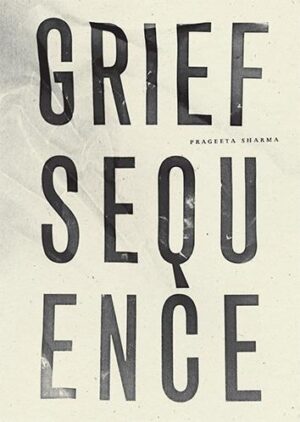
Prageeta Sharma, Grief Sequence (Wave Books)
The usefulness and uselessness of words and poems in the face of love and death form the heart of Grief Sequence and it’s an extraordinary conceit. “Is that why I have to write poems now?” Sharma writes. “If I can’t talk to you anymore I won’t know what to do with myself.” This book is honest and brave, and we hear that about so many books and the words seem pat, but sit with those words for a moment, because they are dire and difficult. This book tackles the messiness of grief and of the people we grieve. In mostly prose poems that are, characteristically to the poet, lush and cerebral and fraught, we meet a mind trying to make sense of the unfathomable. She never quite makes it, because the unfathomable is just that, but the journey of this book is one that finds beauty after pain, creating a compassionate roadmap for any of us who grieve, which is, or will be, all of us.
Purchase Book
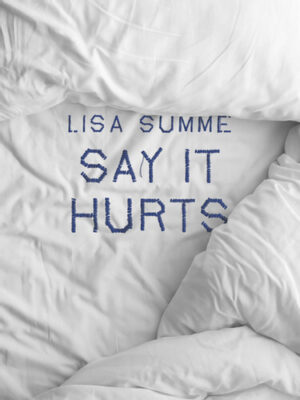
Lisa Summe, Say it Hurts (YesYes Books)
I’ve read this book at least a handful of times. This most recent time I thought, I should read it again if I’m going to write about it but I can probably skim it because I know it so well. And yet I didn’t skim it. Every time I start this book I am fully in it, and don’t leave until it leaves me. These poems, each, are so vivid, are whole worlds, whole worlds inside the small everyday worlds they portray, these poems about love, lust, loss, religion, growing up, coming out. These poems, together, are the moment the roller coaster car leaves the docking station until the moment it brings you back, a little knocked around and dizzy but enraptured and full of joy. Which isn’t to say this book is about joy, though it sometimes is. These are poems about people, what people do to and with each other in the name and face of all kinds of love. The poems slide down easy because of Summe’s skilled hand, but they will burn for a while.
Purchase Book


